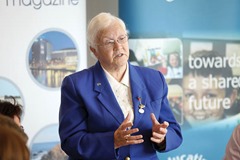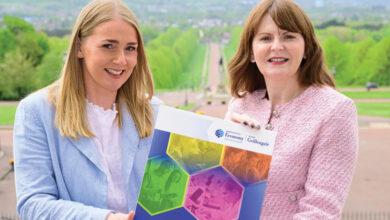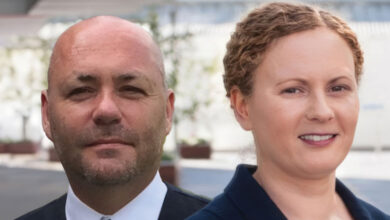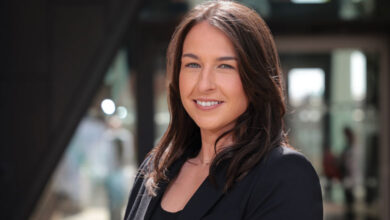Education: the integrated view
 Integrated education advocate Baroness May Blood shares her views on the sector’s role in Northern Ireland with agendaNi.
Integrated education advocate Baroness May Blood shares her views on the sector’s role in Northern Ireland with agendaNi.
What are your general impressions of Northern Ireland society in 2013?
No-one could deny we’ve seen massive changes for the better in the past fifteen years, but no-one should ignore that sections of the population feel left behind since the Belfast Agreement. We are working towards normalisation but we need to remove the segregation which still underpins elements of civic life.
We have laws to combat sectarianism in the workplace and we have reformed policing so it seems anomalous that housing and schooling are still compartmentalised.
It’s time to take an overall view of public services which means the best use of resources to benefit everyone, especially in such a tough economic climate.
What are your impressions of the shared education advisory group report?
I thought that establishing a group to look at division and inequality in education was a massive step forward; it was encouraging to see a Minister face up to the social issues which need to be addressed in schools if we are to progress as a society. However, it’s no secret that as a passionate advocate of integrated education I was disappointed by the group’s report – specifically in that integrated schools were not considered a model of shared education.
Sharing between schools is a step on the right path but not the end of the journey, or anywhere near it. Integrated schools provide an environment where both diversity and unity are encouraged and celebrated, in the classroom and playground every day. They can offer the benefits of thirty years of exploring sharing to the fullest extent.
The report doesn’t go far enough in taking the segregation out of the education system. Current proposals for school planning are based along the same old lines but we need to devise an improved, inclusive system which delivers local education for the whole community.
And the Building a United Community strategy?
I welcomed the announcement of this as an acknowledgement that the peace-building is a continuing process. We need to look at restructuring the way our services are delivered and for me education is key. I don’t feel that bringing targeted groups of young people together on a summer scheme goes far enough to address the widespread ingrained divisions in our political and civil structures. I also feel that the public is ready for more than piecemeal strategies and is willing to work together more than politicians seem to acknowledge.
How do you explain the difference between support for integrated education and the number of pupils in the sector?
Over the years surveys have shown continuing, overwhelming support for integrated education. Most recently, results from a Lucid Talk poll published in the Belfast Telegraph found that 79 per cent of parents questioned would support their school transforming to integrated status. Yet you’re right, only 7 per cent of children go to integrated schools. The fact is that there has been a lack of political will to make more places available in integrated schools.
Every integrated school in Northern Ireland is here because of grassroots, community activity – not one was initiated and established by the Department of Education. There has been a reduction in the school-age population in Northern Ireland but the integrated sector has fared better than any other, with many first-choice applicants to integrated nurseries, primaries and colleges turned away.
Many of those don’t have the option of a second-choice integrated school. What the polls showed as well was that many of these disappointed families didn’t even know that any school can apply to become formally integrated. And the Stormont government, under the Belfast Agreement, has an obligation to encourage and facilitate integrated education.
So the disparity to me is not in the two sets of figures but between the government’s statutory duty and the lack of action to give parents the option of an integrated place for their child.
Have any specific examples of work in the sector impressed you over the last year?
This year for the first time, Integrated Education Week (in March) took on an international aspect. There is a growing movement, bringing children together from an early age in the name of peace and stability, in post-conflict societies. In integrated schools in Northern Ireland, some projects stand out:
• work among second-level integrated colleges to bring children from primary schools of all management types together for language lessons, or art, sport and music projects;
• students in at least one college have formed a gay/straight alliance to combat homophobia and bullying; and
• there are many ‘green’ initiatives which underline pupils’ role and responsibility in the wider world.
I’ve enjoyed watching the development of Cliftonville Integrated Primary in North Belfast; the school transformed to integrated management in 2008. There is now a diverse mix of families working together and the school is going from strength to strength, with a positive impact on relationships in the community beyond the school gates.
What message should politicians and the international media take away from the G8 summit?
Northern Ireland is an example of how conflict can be transformed into peace but also a reminder that we are undergoing a process, not experiencing an event.
People at grassroots have worked with courage and faith to create what we have and those qualities are still at work as we urge our politicians to reflect the public will and take meaningful steps to a truly united future.





